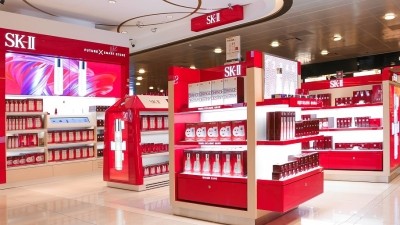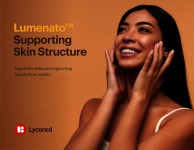P&G and Unilever among brands caught up in India’s ‘profiteering’ dragnet

P&G India and Hindustan Unilever are among the brands caught up in a dragnet conducted by the Directorate General of Anti-profiteering (DGAP), though they both deny the allegations of withholding lower prices from customers.
The DGAP is the investigatory arm under the finance ministry that reports to the top anti-profiteering body, the National Anti-profiteering Authority (NAA). Already, around 100 cases of alleged anti-profiteering have been referred to the authority.
P&G among those accused of profiteering
DGAP alleged last month that P&G did not pass on over INR2.5bn (US$35m) in tax benefits, which were meant to have been returned to customers. The manufacturer was issued in April with a notice to explain why it kept hold of these tax benefits.
The NAA is likely to come up with a final order in the case within three months, though this can be challenged in India’s higher courts.
“We have passed on the net benefit and communicated the same via advertising in mass media,” P&G responded. “As a responsible corporate, P&G has always been committed to passing the net benefit of GST rate reduction to consumers.”
This requirement to pass on lower prices to customers follows the lowering of tax rates from 28% to 18% on 178 FMCG items, in November 2017, including shampoos and beauty products.
If it finds the company guilty, it can order it to either lower prices retrospectively, return money to consumers, impose a penalty or even cancel a firm's registration. It can also ask the company to deposit the amount in question into the government’s consumer welfare fund.
A string of other major companies have also been caught up alongside P&G in their own investigations across a number of retail segments.
DGAP has accused other consumer brands, including Patanjali Ayurveda and ITC, of also profiteering. According to its report, the agency indicated that Patanjali had earned nearly US$25m profit on various FMCG lines until last August. The scope of the profiteering probe into the company has since been extended to March this year.
In January, the NAA found Hindustan Unilever guilty of profiteering to the tune of INR4.6bn, though this was later lowered to Rs3.8bn. The case is currently being heard by Delhi High Court.
The cases that have come to light show an increase in base price to offset the tax reduction. However, companies argue that these increases are not without basis.
Under Section 171 of the GST law, any reduction in rate of tax on the any supply of goods or services shall be passed on to the recipient by way of commensurate reduction in prices.
But there have been complaints that firms have increased the base price of their products and then charged the lower GST rate, thereby keeping the MRP of products the same before and after the cut to the tax rate. Without any specific guidance, each NAA decision sets new precedent.









![[Getty Images]](/var/wrbm_gb_food_pharma/storage/images/_aliases/wrbm_tiny/publications/cosmetics/cosmeticsdesign-asia.com/china/china-focus-latest-developments-in-china-s-booming-beauty-market22/17370102-1-eng-GB/China-focus-Latest-developments-in-China-s-booming-beauty-market.jpg)
![YSL's LoveShine launch has sparked a demand surge in Japan. [YSL]](/var/wrbm_gb_food_pharma/storage/images/_aliases/wrbm_tiny/publications/cosmetics/cosmeticsdesign-asia.com/article/2024/04/24/ysl-loveshine-launch-propels-lip-gloss-sales-to-record-highs-in-japan-since-2020/17372064-1-eng-GB/YSL-LoveShine-launch-propels-lip-gloss-sales-to-record-highs-in-Japan-since-2020.jpg)
![There is significant scope for innovation and new launches in the hair repair sector, especially in soaring markets such as China. [Getty Images]](/var/wrbm_gb_food_pharma/storage/images/_aliases/wrbm_tiny/publications/cosmetics/cosmeticsdesign-asia.com/article/2024/04/24/croda-zeroes-in-on-hair-repair-solutions-as-damage-hair-concerns-surge-in-markets-like-china/17362731-1-eng-GB/Croda-zeroes-in-on-hair-repair-solutions-as-damage-hair-concerns-surge-in-markets-like-China.jpg)



![Lubrizol has extended its partnership with C-beauty major PROYA. [PROYA]](/var/wrbm_gb_food_pharma/storage/images/_aliases/wrbm_tiny/publications/cosmetics/cosmeticsdesign-asia.com/headlines/brand-innovation/lubrizol-bullish-on-potential-of-c-beauty-growth-potential/17362515-1-eng-GB/Lubrizol-bullish-on-potential-of-C-beauty-growth-potential.jpg)



